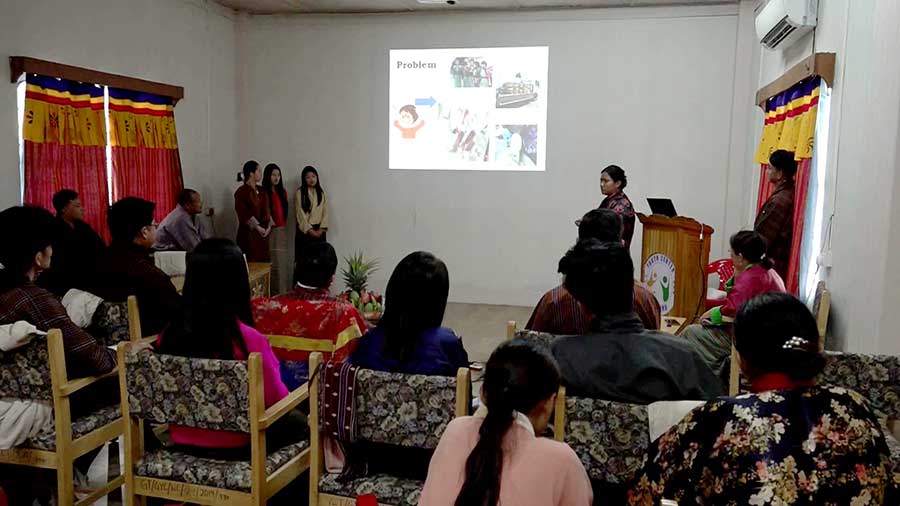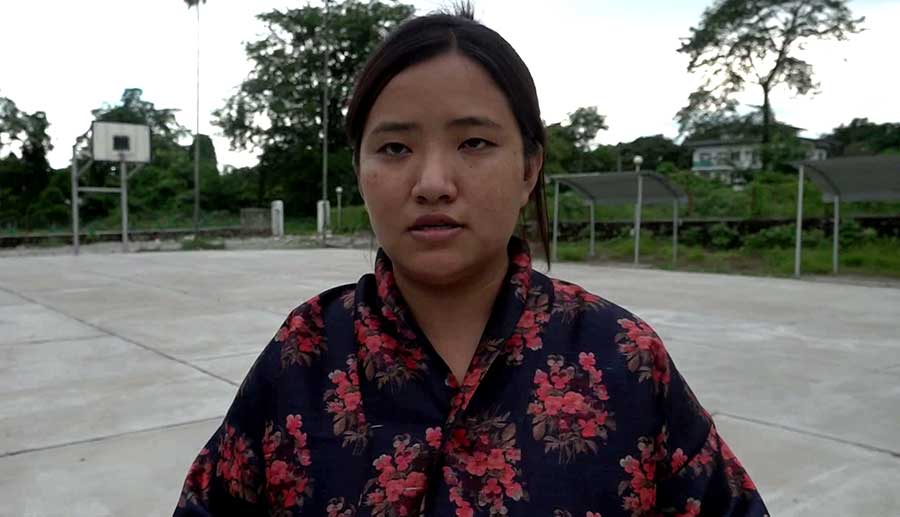
Responsible and safe disposal of sanitary pads has always been a challenge not just in Bhutan but globally. The plastic used in disposable sanitary napkins is not bio-degradable and leads to environmental hazards. But one of the youth in Sarpang has come up with a sustainable solution – affordable and biodegradable sanitary pads made from banana fibre.
 Sangay Zangmo is the brainchild behind the idea. It was one of the best social business ideas during the recently held entrepreneurship workshop.
Sangay Zangmo is the brainchild behind the idea. It was one of the best social business ideas during the recently held entrepreneurship workshop.
She said the majority of the existing sanitary pads are not eco-friendly. And that’s when she came across the idea of using banana fibre which has excellent absorption properties.
“The material we use is different from the rest of the sanitary pads. Ours is eco-friendly and biodegradable. Imported pads are cotton and gel pads. The imported pads may have a cotton part inside which will degrade but the external cover is all plastic and glue which takes 500 to 800 years to degrade. Our pad is biodegradable and environmentally approved,” said Sangay.
Sangay will undergo up-skilling training in the capital to work on her idea.
Meanwhile, residents said that if the idea materialises, it will help them earn more money.
 “We will have more benefits because we only have been feeding our cattle in the past. But if youth start taking our banana trees then we can make a good income,” said Monorat Katel.
“We will have more benefits because we only have been feeding our cattle in the past. But if youth start taking our banana trees then we can make a good income,” said Monorat Katel.
“Bananas are useful for sick people and farmers in the community. We also consume it as a fruit. But if a production unit comes up, then it will benefit us all,” echoed Bedanidhi Timsina.
According to Menstrual Hygiene Bhutan, approximately 208 million pads are disposed of in the country considering the number of sanitary pads used per menstruation cycle by women and girls in a year.
Karma Wangdi, Sarpang
Edited by Sonam Pem







